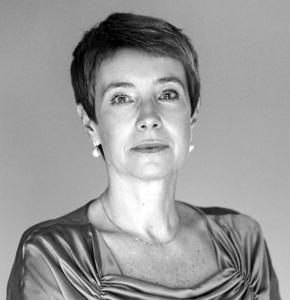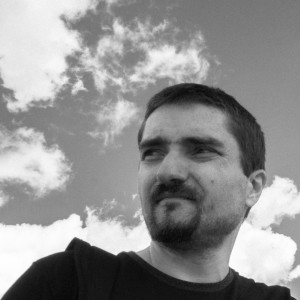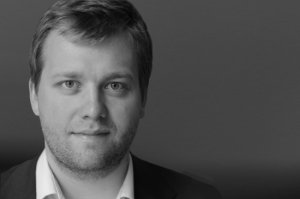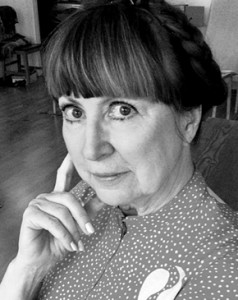
Maria Benktzon, Professor, living in Stokholm, joined Ergonomidesign, now Veryday in 1969. Earlier the same year she graduated from the National College of Arts, Crafts and Design in Stockholm. Very much the rebel towards existing design traditions, she commenced on applying a user centered and inclusive approach to design. A child of her times, trying to make the world a better place for all. She soon found her counterpart in Sven-Erik Juhlin and together they designed kitchenware, cutlery and personal hygiene tools that allowed users to remain independent, and allowed them to keep their personal sense of respect. Among her numerous designs are crutches and walking sticks, clothes for disabled, the SAS coffee pot, the Doro phones for seniors, the Tupperware knives and work protection gloves for Ejendals. All of which were developed in close collaboration with the end users and with the utmost ambition of making form and function harmonize. In 2000 Maria received the Ron Mace ‘Designing for the 21st century’ award and at the Include Conference in London in 2005 she received a lifetime achievement award.
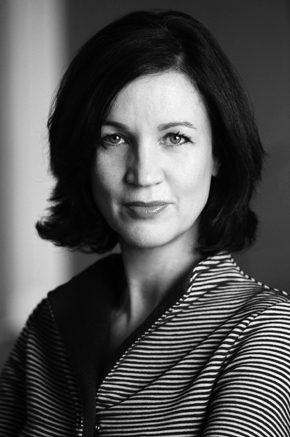
Alison J. Clarke, Professor of Design History and Theory and Director, Victor Papanek Foundation at the University of Applied Arts Vienna, trained at the Royal College of Art and V&A Museum, London, before gaining her doctorate in social anthropology at University College London. Author of Design Anthropology: Object Culture in the 21st Century and Tupperware: The Promise of Plastic in 1950s America (made into an Emmy-nominated documentary), her work explores the histories, politics and social relations of material culture. She is a regular media contributor including the award-winning series The Genius of Design (BBC) and is presently completing a monograph for MIT Press titled Designer for the Real World: Victor Papanek and 1970s Design Activism.
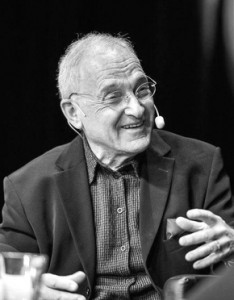
Lars Dencik, Professor of Social Psychology. He resides in Stockholm and is affiliated to Roskilde University, Denmark. His focus on research is the implications of societal modernization processes on everyday social life. Within this context he investigates how personal as well as cultural identities and relations are formed and transformed. Among his recent publications are: Into The Era Of Shifts: How Everything gets Designed in an Increasingly Non-designed World (Arvinius, 2005); Homo Zappiens – a European-Jewish Way of Life in the Era of Globalisation (Berghahn Books 2006); Neo-Tribalism: Exploring the Populist Backlash to a Cosmopolitan Europe (Nova Science Publishers 2012); The Dialectics of Diaspora in Contemporary Modernity (BRILL, 2014).
Krystyna Iglicka-Okólska, economist and a social demographer, full Professor, Rector and Professor at the Lazarski University. Polish government expert on migration policy. She was a Fulbright Fellow at the Department of Sociology (University of Pennsylvania) in 1999-2000 and a Polish Science Foundation, British Academy and Foreign and Commonwealth Office Fellow at the University of London, 1996-1999. She was also a Dekaban Foundation Fellow at the University of Glasgow in 1996. In the period 2002-2003 she was a Deputy Director of the Institute for Social Studies at the University of Warsaw. She taught at various Polish universities and also at University College London (UK), University of Glasgow (UK) and University of Birmingham (UK). She has served as consultant or expert to various international organisations e.g. European Commission, International Organisation for Migration, OECD, and Poland’s government departments. She has presented papers to more than 80 international academic seminars and conferences. She was a key-note speaker and served as a theme convenor and session organiser in the area of international migration. Works published by Krystyna Iglicka include 10 academic books, nearly 70 research papers/articles in academic journals published mainly in the USA, UK and Poland and numerous policy oriented expertises, reports and analyses.
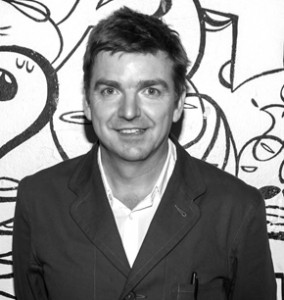
Guy Julier, Professor of Design Culture at the University of Brighton and the Principal Research Fellow in Contemporary Design at Victoria & Albert Museum, London. He was previously Professor of Design at Leeds Metropolitan University, where he directed DesignLeeds, a research and consultancy unit specialising in design for social and environmental benefit. He has also held visiting posts at the University of Southern Denmark, the Glasgow School of Art and the University of Otago in New Zealand. Among Professor Julier’s books feature New Spanish Design, The Dictionary of Design since 1900 and The Culture of Design, which appeared in a 3rd revised edition in 2013. He is currently writing a book about design and economics. His activities work at the intersections of design and the social sciences through which he has advanced Design Culture studies as a disciplinary field. Recently he has been working alongside academics and designers in furthering research practices in social design.
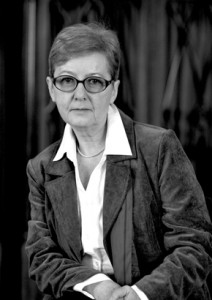
Professor Mirosława Marody, Ph.D. Hab. at the Institute of Sociology of the Warsaw University, where she is head of the Social Psychology Research Unit; head of the Political Sciences Centre at the Inter-Departmental Social Studies Centre of the Warsaw University, correspondent member and vice-president of the Polish Academy of Sciences. Author and co-author of numerous research works and analyses focusing on the Polish society and its activities. She was editor of such books as i.a. Co nam zostało z tych lat… Społeczeństwo polskie na progu zmiany systemowej (What Are We Left With… Polish Society on the Threshold of System Change, 1991), Oswajanie rzeczywistości. Między realnym socjalizmem a realną demokracją (Taming Reality. Between Realist Socialism and Real Democracy, 1996), Między rynkiem a etatem. Społeczne negocjowanie polskiej rzeczywistości (Between the Market and the Job. Negotiating Polish Reality Socially, 2000), Polacy wśród Europejczyków. Wartości społeczeństwa polskiego na tle innych krajów europejskich (Poles among Europeans. Polish Society Values against Other European Countries, 2003), Wymiary życia społecznego. Polska na przełomie XX i XXI wieku. (Dimensions of Social Life. Poland of the Late 20th and Early 21st Century, 2007). Co-author of Przemiany więzi społecznych (Transformations in Social Bonds, 2004), with Anna Giza-Poleszczuk. For the past few years, she has been focusing on issues of changes to the contemporary society. In the year 2014, she published a book summarising there transformations from the sociological perspective: Jednostka po nowoczesności (The Post-Modernity Individual).
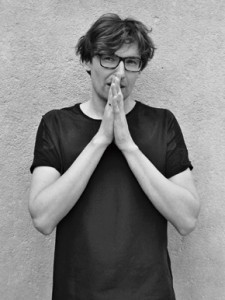
Paweł Pokutycki, an interaction designer, researcher and lecturer at the Royal Academy of Art (KABK) in The Hague. In 2005, he initiated early activities of the RFID Lab, later called the AR+RFID Lab, an experimental interdisciplinary platform for research in the application of Augmented Reality (AR) and Radio Frequency Identification (RFID) technologies in the field of art and design. He is a core member of the Alternative Learning Tank (ALT), a nomadic school and artistic organization that focuses on research, creation and implementation of educational programs on progressive and radical fields of knowledge that are not contemplated by educational institutions. His recent projects focus on exploring relationships between new media theory, political, social and cultural studies by concept development and prototyping for interactive media. He believes in a methodology of design based on his own peculiar interpretation of the Black Box Theory, presented at a TEDx event in 2012.
http://tedxtalks.ted.com/video/Exploring-the-Black-Box-Pawel-P
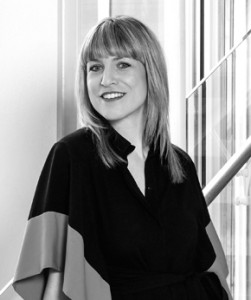
Zoë Ryan, a British curator and writer. She is the John H. Bryan Chair and Curator of Architecture and Design at the Art Institute of Chicago. Zoë has authored and edited numerous publications, including: Building with Water: Designs, Concepts, Visions (Birkhauser Press, 2010). Often called upon as a juror and critic, Zoë has lectured on her work internationally. She has served on the advisory committee of the Experimenta Design Biennial in Lisbon and was part of the curatorial advisory committee for the U.S. Pavilion at the Venice Architecture Biennale in 2012. She served as Chair of the Jury for the National Design Awards, Cooper Hewitt National Design Museum, New York in 2013, and that same year was part of the jury for the Wheelwright Fellowship, Graduate School of Design, Harvard University. In fall 2012, Fast Company magazine named Zoë one of the 50 people shaping the future of design. Zoë is an Adjunct Associate Professor at the School of Art and Design at the University of Illinois at Chicago and a lecturer in the Art History Department at the School of the Art Institute where she teaches a Masters-level seminar focused on critical issues in design.
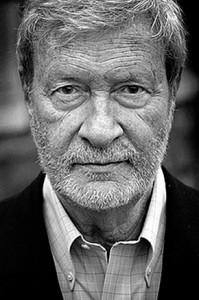
Gianni Vattimo, philosopher, leading European thinker of the late 20th and early 21st century. Since 1982, professor of theoretical philosophy at the Università degli Studi di Torino. As a visiting professor, he lectured in the United States (Yale, Los Angeles, New York). Since the mid-1970s, he attended numerous scientific conferences; he is publishing council member of many scientific periodicals. Former editor-in-chief of Rivista di estetica, regular essay contributor to the press: La Stampa, L’Espresso, Il Manifesto, L’Unità, El Pais, and Clarin. Member of the European Parliament in the 1999-2003 and 2009-2013. His chief works include La fine della modernità. Nichilismo ed ermeneutica nella cultura postmoderna (1985) – “Koniec nowoczesności” (The End of Modernity), translated into the Polish language by M. Surma-Gawłowska, Cracow 2006., La società trasparente (1989) – “Społeczeństwo Przejrzyste” (The Transparent Society)”, translated into the Polish language by M. Pachciarek, Wrocław 2006, Oltre l’interpretazione. Il significato dell’ermeneutica per la filosofia (1994), Credere di credere (1996), La religione (1996) – collective work, Religia, collective translation, Warsaw 1999, Vocazione e responsabilità del filosofo (2000), Tecnica ed esistenza. Una mappa filosofica del Novecento (2002), Nichilismo ed emancipazione. Etica, politica, diritto (2003), Non essere Dio. Autobiografia a quattro mani (2006) – Nie być Bogiem. Autobiografia na cztery ręce (Not Being God. An Autobiography at Four Hands), translated into the Polish language by K. Kasia, Warsaw 2011, Ecce Comu. Come si ri-diventa ciò che si era (2007).
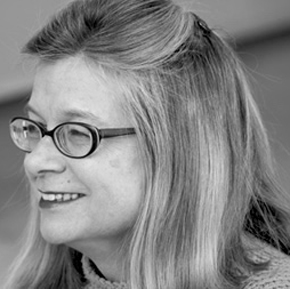
Susan Yelavich, Associate Professor and Director of the MA Design Studies program in the School of Art and Design History and Theory at Parsons The New School for Design. She has also taught at Nuova Accademia di Belle Arti, Milan, Italy, and The New School’s Democracy & Diversity Institute in Wroclaw, Poland. Her current research explores the parallels between design and literature and the relationship between textiles and architecture. Yelavich is the author of numerous articles and books, including Design as Future-Making (2014), Contemporary World Interiors (2007), Pentagram/Profile (2004), Inside Design Now (2003), Design for Life (1997), and The Edge of the Millennium: An International Critique of Architecture, Urban Planning, Product and Communication Design (1993). She is a Fellow of the American Academy in Rome (2003-2004). Previously, she was the assistant director for public programs at Cooper Hewitt, Smithsonian Design Museum in New York.
Daniel Zieliński, Associate Professor and designer. He graduated from the Faculty of Industrial Designat the Academy of Fine Art. in Warsaw in 1997. After his studies he began working at his alma mater. He defended his PhD thesis in 2011. He works as a freelancer, mainly designing electronic equipment and inventing and creating objects that verge on art and design. He and Maria Górska have designed exhibitions for the National Museum in Warsaw and the Zachęta National Gallery of Art, among others.
Alek Tarkowski, PhD in Sociology, Director of Centrum Cyfrowe Projekt Polska, a think-and-do-tank switching society to digital. Founder and lead of Creative Commons Poland, member of the Council of Information, an advisory body to the Polish Ministry of Administration and Digital affairs, vice-chairman of the Polish Coalition for Open Education. In 2008-2011 member of the Board of Strategic Advisors to the Prime Minister of Poland, responsible for matters related to the development of digital society. Co-author of the report „Poland 2030”. Co-author of the project „Culture 2.0”, dedicated to the cultural changes under the influence of digital media. He is interested in the sociology of media and digital technologies; social and cultural consequences of their functioning in society and open models of knowledge production and culture. He specializes in issues relating to open models of production and distribution of content, in particular openness of public resources.


